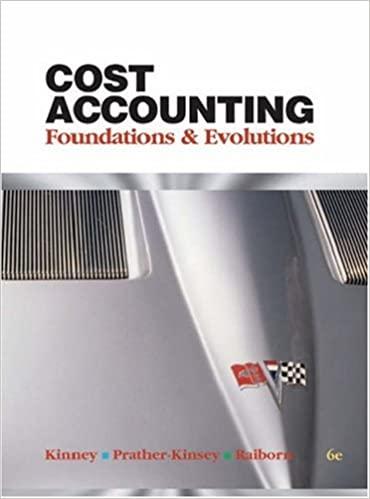(Appendix 1) Use the tables in Appendix A to determine the answers to the following questions. Ignore...
Question:
(Appendix 1) Use the tables in Appendix A to determine the answers to the following questions. Ignore taxes in all circumstances.
a. Jim wishes to have $40,000 in six years. He can make an investment to¬ day that will earn 6 percent each year, compounded annually. What amount of investment should he make today to achieve his goal?
b. Jill is going to receive $200,000 on her 50th birthday, 25 years from today. She has the opportunity to invest money today in a government-backed security paying 5 percent compounded annually. How much would she be willing to receive today instead of the $200,000 in 25 years?
C. Tara has $60,000 today that she intends to use as a down payment on a house. How much money did Tara invest 20 years ago to have $60,000 now if her investment earned 8 percent compounded annually?
d. Matt is the host of a television game show that gives away thousands of dollars each day. One prize on the show is an annuity, paid to the win¬ ner, in equal installments of $100,000 at the end of each year for the next five years. If a winner has an investment opportunity to earn 8 per¬ cent, annually, what present amount would he or she take in exchange for the annuity?
e. Keri is going to be paid modeling fees for the next 10 years as follows: year 1, $50,000; year 2, $55,000; year 3, $60,000; years 4-8, $100,000; year 9, $70,000; and year 10, $45,000. She can invest her money at 7 percent compounded annually. What is the present value of her future modeling fees?
f. Your friend has just won the lottery that will pay her $200,000 per year for the next five years. If this is the only asset your friend owns, is she a millionaire (one who has a net worth of $1,000,000 or more)? Explain.
LO.1
Step by Step Answer:

Cost Accounting Foundations And Evolutions
ISBN: 9780324235012
6th Edition
Authors: Michael R. Kinney, Jenice Prather-Kinsey, Cecily A. Raiborn





